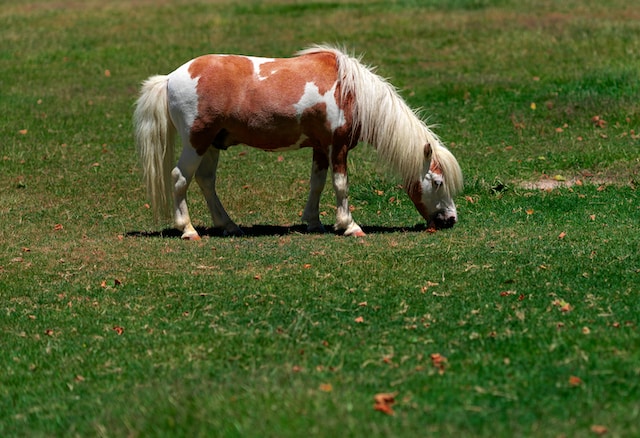
How to Care for a Service Miniature Horse
Service miniature horses are intelligent, gentle, and loving animals that are trained to provide assistance to people with disabilities. They are well-suited to the role of service animals because of their small size, high level of intelligence, and gentle nature.
If you own one or are planning to, you should know that they also require a significant amount of care to ensure their well-being and health. Read this article to learn some of the ways in which you can care for a service miniature horse.
Provide a suitable living space
Service miniature horses are typically kept in stalls when they are not working. Be to provide them with a clean, dry, and well-ventilated stall that is large enough for them to move around in. Moreover, the stall should be free of hazards such as sharp objects or protrusions that could cause injury to the horse.
Feed your horse a balanced diet
Service miniature horses require a balanced diet that provides them with all of the necessary nutrients. This includes hay or pasture grass, as well as grain or pelleted feed. Always consult with a veterinarian or equine nutritionist to determine the appropriate diet for your horse based on its age, weight, and activity level.
Provide clean water
Access to clean, fresh water is essential for the health and well-being of service miniature horses. Water should be changed daily, and the water trough or bucket needs to be cleaned regularly to prevent the growth of bacteria or algae.
Maintain proper hygiene

Regular grooming is important for the health of service miniature horses. Grooming tips include brushing their coat, mane, and tail, as well as cleaning their hooves. Service miniature horses may also require regular trimming of their hooves to prevent overgrowth.
Exercise and socialization
Service miniature horses require regular exercise and socialization to maintain their physical and mental health. This can include daily walks or turnout in a pasture with other horses. It is important to ensure that the exercise and socialization are appropriate for the horse’s age and physical condition.
Regular veterinary care
Service miniature horses require regular veterinary care to maintain their health. This includes routine vaccinations, deworming, and dental care. It is important to work with a veterinarian who has experience with horses and is familiar with the specific needs of service miniature horses.
Training and education
Service miniature horses require specialized training to perform their duties as service animals. It is important to work with a qualified trainer who has experience working with service animals.
In addition, it is important to educate yourself on the laws and regulations related to service animals to ensure that you are providing appropriate care and following all legal requirements.
Conclusion
Keep in mind that caring for a service miniature horse requires a significant amount of time, effort, and dedication. However, the rewards of having a loving and loyal companion that provides assistance to people with disabilities are well worth the effort!
By providing them with a suitable living space, a balanced diet, and everything else they need to thrive, you can ensure that your service miniature horse is well-cared for.
Do you own an assistance animal? Register your pet today. The Service Animal Registry of California invites you to have your assistance animal registered in order to designate its status. We also encourage you to take our online classes so you can be fully aware of your rights and gain more knowledge about your support animal.
Finally, we present to you our book entitled, “ASSISTANCE ANIMAL LAWS: LEARN YOUR RIGHTS REGARDING SERVICE ANIMALS, EMOTIONAL SUPPORT ANIMALS, THERAPY PETS, AND OTHER DOGS, CATS, AND ASSISTANCE ANIMALS” to provide you with a complete education on assistance animals. Purchase your copy of the book by clicking the image below.

